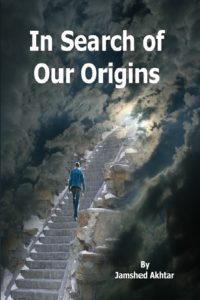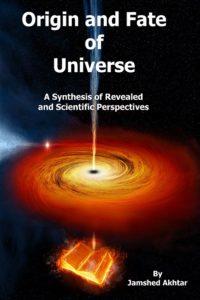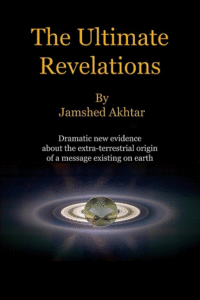In Search of Our Origins, provides answers to almost all questions on the origin of life and man.
Linguistic analysis of verses from the Quran tells us about the way the first molecule of life arose on the planet, which mechanism was involved, a probable location of this event on the primeval earth and how the life developed subsequently.
The pointers also tell us about the origin of man and his link with life on earth, how he and his mate were created, where they were nurtured initially, and where did they appear on earth.
A mechanism for verification of this information is also presented.
– Consensus of Biblical scholars regarding Revealed Knowledge
– Possibilities of extra-terrestrial origin of Revelations
– Physical evidences of revelations
– How to verify evidences from the past
– Recording and preservation of revelations from Quran
– Terrestrial or extra-terrestrial origin of life
– First appearance of life’s molecule on earth
– Location of its birth on the primeval earth
– Life’s journey after its creation
– Why did life remain in a unicellular stage for a long period
– Possibilities of non-organic life forms present on the planet
Specific issues related to man are –
– Link of man with rest of the life on planet
– Creation of first man and his mate
– Time of their creation on earth
– Why a gap of 84000 years exists between the first mitochondrial eve and the man who’s Y-chromosomes humanity carries
– Initial nurturing of the first pair in a protected environment
– Possible location of this protective environment
– Human pair’s first appearance on earth
– First pair’s ability to communicate
– The gift included a basic structure of language
– Link of Adam’s creation with the birth of Jesus
– Involvement of other intelligence in the creation of life and man
– Mystery of jinn and angels
The discussions on above issues, link symbiotically the revealed information from Quran with the scientific knowledge. Scientific knowledge is used to comprehend the revealed knowledge better, and hints from revealed knowledge are utilized as guidance in the scientific researches. The research presents huge quantity of complex information, which requires proper investigation.
———–
Mr. Akhtar’s book is veritably a truthful investigation of the scientific value of the Qur’an as a source of eternal interest. His thorough study of the different meanings of the words investigated and reliance on arguments of a linguistic nature rightly point to the significance of his effort. His ability to trace the denotations and his reference to Arabic resources of notable renown cannot be underrated. On the linguistic level, the book appears to be a legend, one that even Arab scholars, writing in their native language Arabic, need to emulate. This level of analysis opens up vistas of linguistic research that are direly required, especially with the ever-expanding body of scientific knowledge that ushers to the need for re-pondering the interrelations between the linguistic and scientific in the study and understanding of the Glorious Qur’an, the everlasting miracle of Islam.
Dr Amr Mansour El Zawawy is an expert in Arabic and English languages from Alexandria University of Egypt, teaches ‘translation and grammar’, essay; language drills, historical linguistics, syntax and morphology. His Linguistic Fields are Linguistic theories, Psycholinguistics and translation.
‘In Search of Our Origins … is well-conceived, planned, and executed. This book is also easy to read and understand. It covers a wide variety of interrelated topics and expands the horizons of this field by focusing on the epistemological study of the relevant Quranic verses. The explanations throughout the book are clear and do not require the reader to have a certain level of religious background or linguistic knowledge.
Dr Mousa A Btoosh, Expert in Arabic and English, from Fahad Bin Sultan University, KSA also responded to our request. His Linguistic fields are Applied Linguistics, Computational Linguistics, General Linguistics, Linguistic Theories, Philosophy of Language, Phonology, Text/Corpus Linguistics, History of Linguistics, Forensic Linguistics etc.




